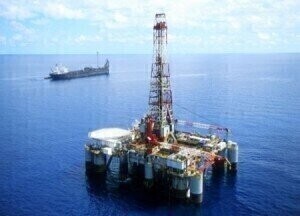Fuel for Thought
New North Sea Oil and Gas Licenses Available, says UK Government
Jun 10 2023
In a controversial decision, Minister for Climate and Energy Graham Stuart MP has stated publicly that the British government will allow the sale of new licenses for drilling in the North Sea. Whilst Stuart is adamant that this will not impact that country’s compliance with the Paris Agreement, this announcement was, to say the least, disconcerting for climate scientists. Rumours have circulated that Norway’s oil and gas giant Equinor (in which the state controls 67% of shares) is eyeing up the Rosebank field, which has the resources for the extraction of roughly 500 million barrels of oil – a reserve three times the size of another North Sea field, the Cambo, for which the Scottish government banned the sale of drilling licenses in 2021.
The commitment has sparked concern amongst scientists and environmental activists, as there is speculation that the government might allow Equinor, a Norwegian company, to develop the Rosebank oil and gas field in the North Atlantic. This project, if greenlit, could result in the production of approximately 500 million barrels of oil.
The International Energy Agency (IEA) and the Intergovernmental Panel on Climate Change (IPCC) have both warned against such projects, suggesting they're incompatible with global efforts to achieve net zero emissions by 2050 and limit global warming to 1.5C above pre-industrial levels. The IPCC has also highlighted that emissions from existing fossil fuel infrastructure could potentially push global temperatures beyond this threshold, triggering potentially catastrophic and irreversible climate tipping points.
In the face of these warnings, Stuart defended the government's stance, stating at the Innovation Zero Congress in London that producing UK's own oil and gas as net importers, even as demand falls, is the correct course of action. He argued that relying on foreign-produced fossil fuels would lead to higher costs and potentially lower production standards. Nonetheless, he assured that the UK would not endorse oil and gas development incompatible with its climate goals.
Philip Evans, a Greenpeace UK climate campaigner, challenged Stuart's assertions, maintaining that any new oil and gas exploration is incompatible with the 1.5C target. He cited the IEA, the UN secretary general, and numerous academics and scientists supporting his stance. Evans urged the government to reconsider its decision, accusing it of propping up an industry that is detrimental to the planet.
In response, Stuart claimed that developing North Sea oil and gas would be environmentally preferable, reducing emissions associated with transporting fuel from abroad and leading to decreased emissions from UK operations.
Stuart also expressed his dissatisfaction with global efforts to combat climate change, claiming the UK is alone in its pursuit of a net-zero trajectory. He argued that the UK is the only nation that can claim non-contribution to the potential catastrophic climate scenario outlined by climate scientists professors David King and Johan Rockstrom.
As Stuart argued, even under net zero in 2050, the UK will continue to use about 20-25% of the gas it currently uses, emphasizing the need to produce it domestically under high standards.
Digital Edition
PIN 25.5 Oct/Nov 2024
November 2024
Analytical Instrumentation - Picturing Viscosity – How Can a Viscometer or a Rheometer Benefit You? - Sustainable Grease Formulations: Evaluating Key Performance Parameters and Testing Method...
View all digital editions
Events
Dec 03 2024 Dusseldorf, Germany
Dec 08 2024 Anaheim, CA, USA
Turkey & Black Sea Oil and Gas
Dec 11 2024 Istanbul, Turkey
Dec 19 2024 Aurangabad, India
Jan 20 2025 San Diego, CA, USA



















